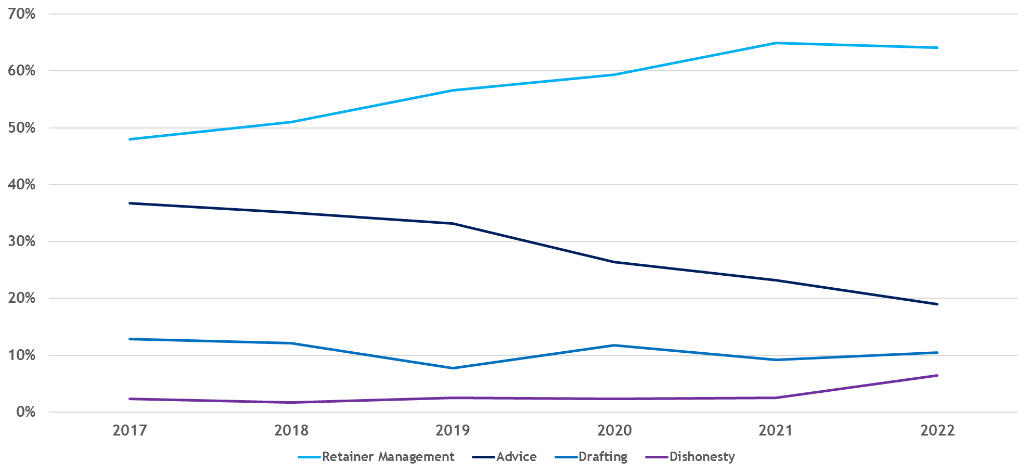

This article was provided by Travelers Europe
James Graham (pictured above left), managing director of professional indemnity at Travelers, interviews Paul Smith (pictured above right), senior risk management consultant at Travelers, about the shifting claims landscape.
Paul, you and a Travelers colleague have been studying long-term trends in solicitors’ professional indemnity claims. What conclusions are emerging from your research?
The main trend we’re seeing is a rise in retainer management issues and errors due to slips and lapses. These errors are often very simple – not following instructions, taking the wrong step in a process, or making a drafting error, for example. But these errors say a lot about the environment in which legal professionals work. When these kinds of claims happen, they are not the result of a failure of advice but rather the result of distraction driven by stress, pressure and fatigue. If people are pushed, they will make mistakes. These claims have been scaling up rather remorselessly over the past five years – not just over COVID.
Claims trends: rising retainer management issues over the past five years

Source: Travelers Europe, 2023
Law firms are inherently high-pressure environments and this came through loud and clear during COVID. What do claim trends illustrate about the challenges of the profession – both during COVID and beyond it?
Lockdown was a massive experiment in behaviour: The stress, fatigue, illness, longer work hours, and struggles with working from home and homeschooling created a breeding ground for retainer management failure. Indeed, during lockdown, we saw three retainer management failure cases for every advice failure case. Pre-lockdown, the ratio was 2:1. While cases increased during COVID, the conditions that lead to these cases are inherent to the legal profession. Employees are going to work hard. They are going to deal with stressful situations.
So how can firms proactively manage the risks and pressures that accompany legal work?
If every hour is an opportunity to make money, people will work longer hours. The potential for slips or lapses in concentration from fee earners increases with fatigue, pressure and stress; and this, in turn, can result in retainer management failure - errors in organising a matter, such as getting the client’s instructions or facts wrong, missing a deadline, missteps in progressing a matter – in other words, process errors.
The Legal Services Board recently authorised the Solicitors Regulation Authority to explicitly require law firms to treat employees fairly and respectfully. How might this change the culture?
Some law firms are concerned they will now face weaponised complaints about employees struggling with mental health and being treated differently. But it’s another sign that firms must act now to ensure their employees are fit to practise. If firms don’t work safely and deal with mental health issues, they are going to get claims. Employees are a firm’s most important asset. They need to be protected.
Find out more about Travelers Professional Indemnity insurance for solicitors
The information provided in this document is for general information purposes only. It does not constitute legal or professional advice nor a recommendation to any individual or business of any product or service. Insurance coverage is governed by the actual terms and conditions of insurance as set out in the policy documentation and not by any of the information in this document. Travelers operates through several underwriting entities through the UK and across Europe. Please consult your policy documentation or visit Travelers online in the UK or Ireland or for full information.
